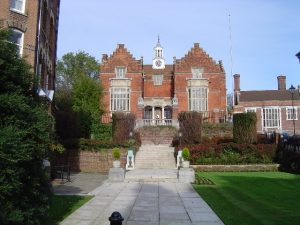
1886-1890
Winter 1885-86 (Age 11)

Winston Churchill, Parliament Square, London © Sue Lowry & Magellan PR
February 4, 2015
The overall result of the November General Election was a political deadlock with Charles Parnell’s Irish Nationalists holding the balance of power. In the ensuing months, English politics was monopolized by the Irish question and Lord Randolph played a prominent role in the intrigues and machinations between both major parties and the Irish. One biographer later wrote, “1886 may well be the most important period in Churchill’s life, but it can hardly be called his finest hour.”
One of Randolph Churchill’s political strategies was a plan to unite with the Whig faction of the Liberal Party. But within his own party he despised the Ulster Unionists. He wrote Lord Salisbury about “those abominable Ulster Tories who are playing the devil in Northern Ireland … I foresee enormous difficulties in the future with Parnell’s party.”
At the end of January, Salisbury’s Tories resigned and the Third Gladstone Ministry was formed. While Gladstone prepared an Irish policy, Lord Randolph prepared for his own visit to Ireland. In February, he wrote,”I decided some time ago that if Gladstone went for Home Rule, the Orange card would be the one to play. Please God it may turn out the ace of trumps and not the two.” Later, he uttered the phrase that became the “ace of trumps” for all opponents of Home Rule: “Ulster will fight, and Ulster will be right.” Winston’s contact with his family was only by letter. One remark to his brother Jack was particularly humorous in light of his later scholastic record: “When I come home I must try and teach you the rudiments of Latin.”
Actively Involved in dramatics in his Brighton school, Winston pleaded with his parents to come to see him perform. To his mother he wrote: “Now you know I was always your darling and you can’t find it in your heart to give me a denial.”

2025 International Churchill Conference
“Now you know I was always your darling and you can’t find it in your heart to give me a denial.”
She could and she did. His father, Lord Randolph Churchill. was busy playing out the most sensational act in his short political career. He was only thirty-seven years old.
On 20 December, 1885 while visiting Windsor Castle, Lord Randolph wrote Lord Salisbury that he could not support the Government’s financial proposals to finance the army. The Prime Minister declined to accommodate his recalcitrant minister so Lord Randolph shared the correspondence concerning his resignation with The Times. The winner in this struggle for power within the Government was not immediately clear, but Lord Randolph was unaware of the extent of the personal feeling against him. The Prime Minister stood firm even though it took him 11 days to find a new Chancellor of the Exchequer. When asked why he did not bring Lord Randolph back into the cabinet, Lord Salisbury replied: “Have you ever heard of a man having a carbuncle on his neck wanting it to return?”
On January 30 Lord Randolph left England for a holiday in the Near East. He was bitter and angry, not the least because his successor refused to purchase his official robes as Chancellor of the Exchequer. Fortunately, this ensured that they would be available for the use of his son when Winston assumed the same office nearly 40 years later.
Subscribe
WANT MORE?
Get the Churchill Bulletin delivered to your inbox once a month.
Oops! We could not locate your form.
Privacy


